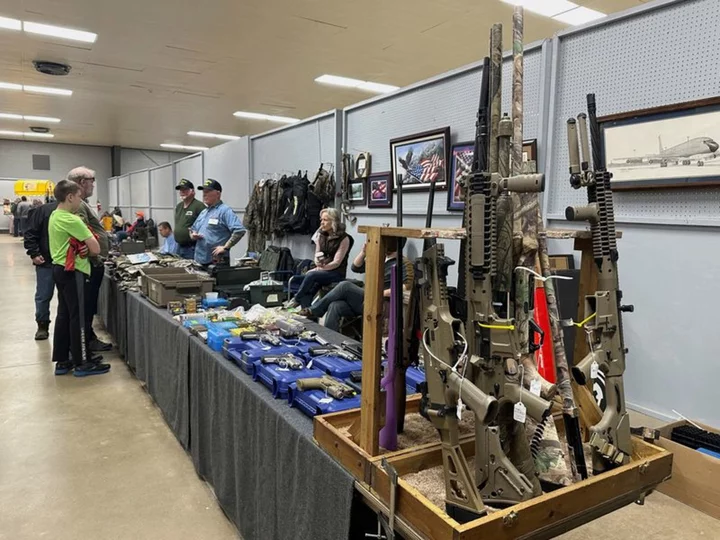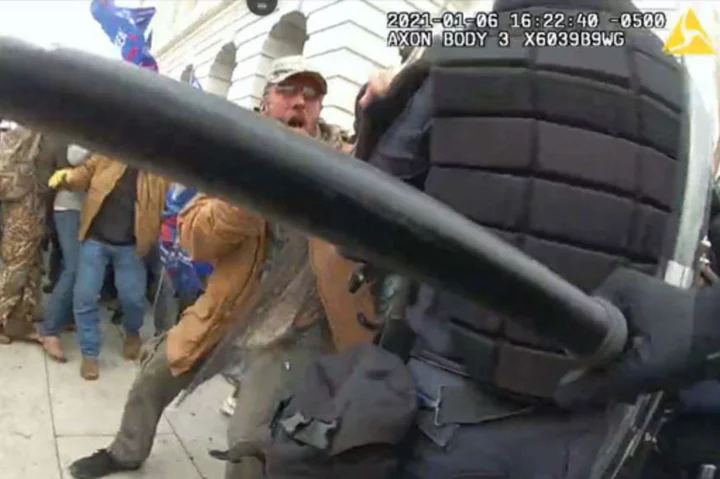By Andrew Chung
The U.S. Supreme Court on Wednesday declined to block a Democratic-backed ban on assault-style rifles and large capacity magazines enacted in Illinois after a deadly mass shooting in Chicago's Highland Park suburb in 2022, handing a setback to gun rights advocates.
The court denied a request by the National Association for Gun Rights and a firearms retailer for an injunction blocking enforcement of the state law and a similar ban enacted by another Chicago suburb, Naperville, while a legal challenge to the measures proceeds.
Democratic Illinois Governor J.B. Pritzker in January signed into law the Protect Illinois Communities Act that banned the sale and distribution of many kinds of high-powered semiautomatic "assault weapons," including AK-47 and AR-15 rifles, as well as magazines that take more than 10 rounds for long guns and 15 rounds for handguns.
The law exempts existing owners, giving them a deadline of Jan. 1, 2024, to register their assault weapons with state police.
The gun rights association, as well as a Naperville-based firearms store, Law Weapons & Supply, and its owner Robert Bevis, challenged the city's ordinance restricting the sale of certain assault rifles and the state's broader ban as a violation of the U.S. Constitution's Second Amendment, which protects the right to "keep and bear" arms.
The case is one of several contesting the state's ban in both federal and state courts.
Illinois passed the ban in response to a massacre at an Independence Day parade in Highland Park in 2022 that left seven people dead and dozens of others wounded.
In signing the law, Pritzker also cited other recent mass shootings - frequent occurrences in the United States - including a 2022 attack that killed 19 children and two teachers at an elementary school in Uvalde, Texas, and a 2012 killing of 20 children and six adults at Sandy Hook Elementary School in Newtown, Connecticut.
A gunman wearing tactical gear and carrying an AR-15-style rifle killed eight people on May 6 at a Texas mall before he was shot by police, prompting President Joe Biden to renew calls for the U.S. Congress to ban assault weapons and high-capacity magazines, as well as to enact universal background checks and end immunity for gun manufacturers.
A federal assault weapon ban enacted in 1994 lapsed a decade later and has not been renewed by Congress despite Democratic efforts. In the absence of broad action by Congress on gun control, some states have enacted various measures, often drawing legal challenges on Second Amendment grounds.
The Supreme Court, with its conservative majority, has expanded gun rights in key rulings since 2008.
In a landmark decision last June striking down New York state gun limits, the Supreme Court recognized the right to carry a handgun in public for self-defense. That ruling also announced a legal standard that could make it harder for lower courts to sustain new or existing gun regulations, requiring them to be comparable with restrictions traditionally adopted throughout U.S. history.
U.S. District Judge Virginia Kendall in February and the Chicago-based 7th U.S. Circuit Court of Appeals in April rejected the challengers' bid for an injunction.
In asking the Supreme Court to halt the ban, the challengers said AR-15s and similar rifles are in common use in the United States and there is no historical analogue to such a ban.
(Reporting by Andrew Chung in New York; Additional reporting by John Kruzel in Washington; Editing by Will Dunham)









